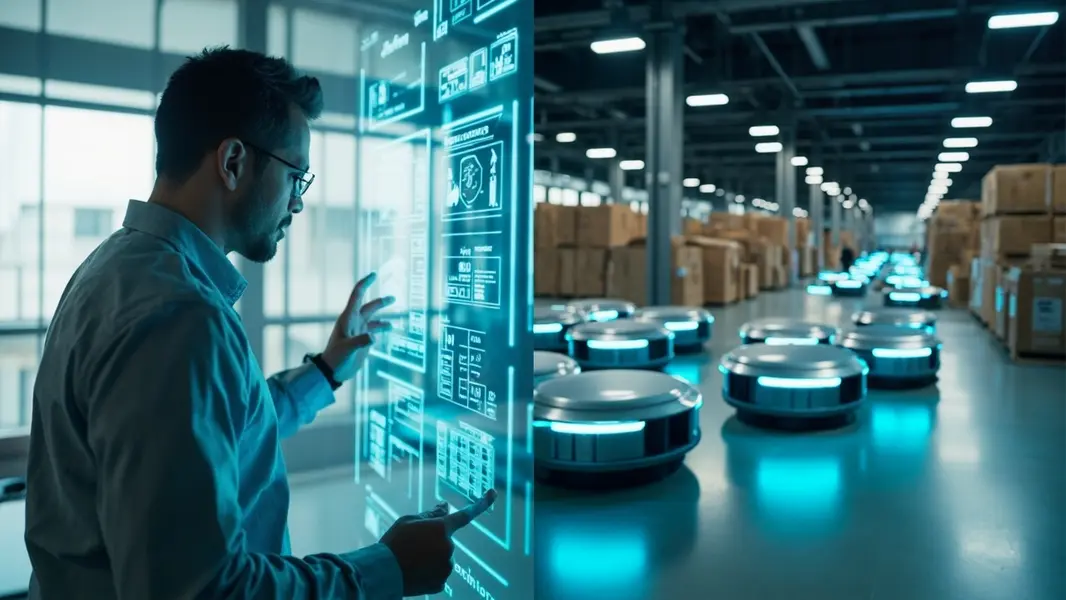Harnessing Intelligent Automation for Unparalleled Productivity and Innovation
As businesses navigate the complexities of the digital landscape, AI agents emerge as game-changing tools, redefining operational paradigms and unlocking new realms of efficiency. These purpose-built autonomous systems are not just technological marvels; they represent a fundamental shift in how work is conceptualized and executed. By seamlessly integrating into existing workflows, AI agents are poised to revolutionize industries, augment human capabilities, and drive unprecedented growth. This article explores the transformative potential of AI agents and their impact on the future of business.
The Rise of Purpose-Built AI Agents

Defining Purpose-Built AI Agents
What Makes Them Different?
Purpose-built AI agents are designed to excel in specific tasks rather than serving as a one-size-fits-all solution. These specialized systems focus on particular functions within a business, transforming how tasks are executed and optimizing performance.
Advantages of Specialization
Outshining General-Purpose AI
Unlike general-purpose AI tools that offer broad applications, purpose-built AI agents are fine-tuned for high efficiency and accuracy in their assigned roles. This specialization allows for faster processing times and improved outcomes, as these agents leverage domain-specific data and algorithms.
Taking Action
Autonomous and Decisive
One standout feature of purpose-built AI agents is their capability to take autonomous actions based on real-time data. Equipped with advanced decision-making algorithms, these agents can adjust strategies dynamically, optimizing results without human intervention.
Transforming Business Functions
Versatile Applications Across Industries
Purpose-built AI agents are reshaping various business operations, including sales, marketing, and customer service. In sales, AI agents can analyze extensive datasets to identify potential leads and recommend tailored approaches, increasing the likelihood of conversion. For marketing, these agents optimize campaigns by continuously analyzing customer interactions and preferences, thus enhancing engagement and driving brand loyalty.
In customer service, AI agents handle a multitude of inquiries simultaneously, providing instant responses and resolving problems efficiently. This leads to higher customer satisfaction and enables human staff to focus on more complex issues, as explained in AI Agents Transforming Business.
Conclusion
Purpose-built AI agents offer a significant advantage by excelling in specific domains, enhancing efficiency, and ensuring precision. As businesses continue to adopt these specialized tools, the potential for revolutionizing fundamental processes and achieving unprecedented efficiency and customer satisfaction grows exponentially.
Revolutionizing Work with Autonomous Agents

Transforming Efficiency and Error Reduction with AI Agents
Autonomous agents offer unprecedented efficiency across industries by automating routine and complex tasks. These AI systems not only streamline workflows but significantly reduce opportunities for human error. This transformation allows companies to redirect focus toward strategic activities, driving more meaningful business progress.
Handling Complexity with Precision
Autonomous agents are designed to manage complex tasks with precision—tasks that traditionally required significant human oversight. In financial services, such agents analyze market trends, execute trades, and ensure compliance with intricate regulations. Their ability to sift swiftly through vast datasets is not just about speed but delivering outcomes with high accuracy that humans might struggle to maintain consistently.
The Potential of Human-AI Collaboration
By integrating AI agents into the fabric of daily operations, a collaborative environment emerges where human creativity and AI efficiency coexist. This partnership enhances decision-making processes and allows employees to focus on creative problem-solving rather than monotonous tasks.
Sector-Specific Innovations
In retail, autonomous agents handle inventory management and personalized customer interactions. This leads to improved customer experience, reduced out-of-stock scenarios, and optimized supply chains. Likewise, in the financial sector, AI agents facilitate personalized financial advice and fraud detection, enabling a deeper trust with consumers. This versatility of AI aids in creating adaptable business models responsive to rapid market changes.
Adopting autonomous agents isn’t just about harnessing AI capabilities; it’s about fostering a thriving ecosystem of human and machine collaboration. As businesses increasingly place AI at their operational core, they unlock new levels of productivity and innovation.
Exploring how AI agents transform business provides further insights into this evolving landscape.
Preparing for an AI-Augmented Future

Data Integration
Effective Integration Strategies
Businesses must prioritize seamless data integration to harness AI capabilities. Structuring data pipelines, ensuring clean and reliable data, and creating centralized data hubs are critical steps. This holistic approach boosts AI model performance and accuracy.
Employee Training
Developing a Workforce Ready for AI
Employee training is crucial to a successful AI transition. Companies should focus on reskilling teams, emphasizing AI literacy and understanding. Workshops, e-learning platforms, and hands-on AI projects help employees adapt. Encouraging a culture of continuous learning fosters innovation and enthusiasm.
Adapting Business Processes
Revamping Processes for AI Compatibility
Introducing AI demands reengineering of business processes. Streamlining workflows to include AI input maximizes efficiency. Managers should evaluate existing processes, identify potential areas of enhancement, and involve stakeholders in iterative process redesigns. Proactivity ensures smoother AI implementation.
Potential Challenges
Anticipating and Mitigating Hurdles
AI integration presents challenges, including technical debt, legacy systems compatibility, and resource constraints. Proactively addressing these issues and developing a comprehensive risk management plan prevents common pitfalls. Close monitoring and iterative improvements help overcome implementation barriers.
Ethical Considerations
Prioritizing Responsible AI Use
Ethical AI deployment should be at the forefront of business strategies. This entails transparent AI systems, unbiased algorithms, and safeguarding user data privacy. Companies must establish clear ethical guidelines and conduct regular audits to ensure compliance and responsible usage of AI.
Vision for the Future
AI’s Impact on the Workforce and Business Landscape
As companies embrace AI, they transform how work is accomplished. AI agents reduce repetitive tasks, enabling employees to focus on innovation. The future workforce will see a symbiotic relationship between humans and AI, crafting a dynamic business landscape. For further insights on how AI will augment business operations, visit AI Agents in Business.
Final words
The integration of AI agents into business operations marks a pivotal moment in the evolution of work. As these intelligent systems become more sophisticated and widespread, they promise to unlock new levels of productivity, innovation, and competitive advantage. Forward-thinking leaders who embrace this technology and effectively blend human expertise with AI capabilities will be best positioned to thrive in the rapidly changing business landscape of tomorrow.
Ready to harness the power of AI agents for your business? Discover how The AI Pandora can help you unlock your company’s full potential in the AI-driven future.
Learn more: https://theaipandora.io/
About us
undefined

Pingback: Revolutionizing Vietnamese Exports: The AI Pandora’s Game-Changing Solutions for Global Success - ai-automation.blog
Pingback: Revolutionizing Exports: How AI is Transforming Modern Printing Operations and Global Trade - ai-automation.blog
Pingback: Unleashing the Power of AI: Revolutionizing Small and Medium-Sized Businesses in Vietnam - ai-automation.blog